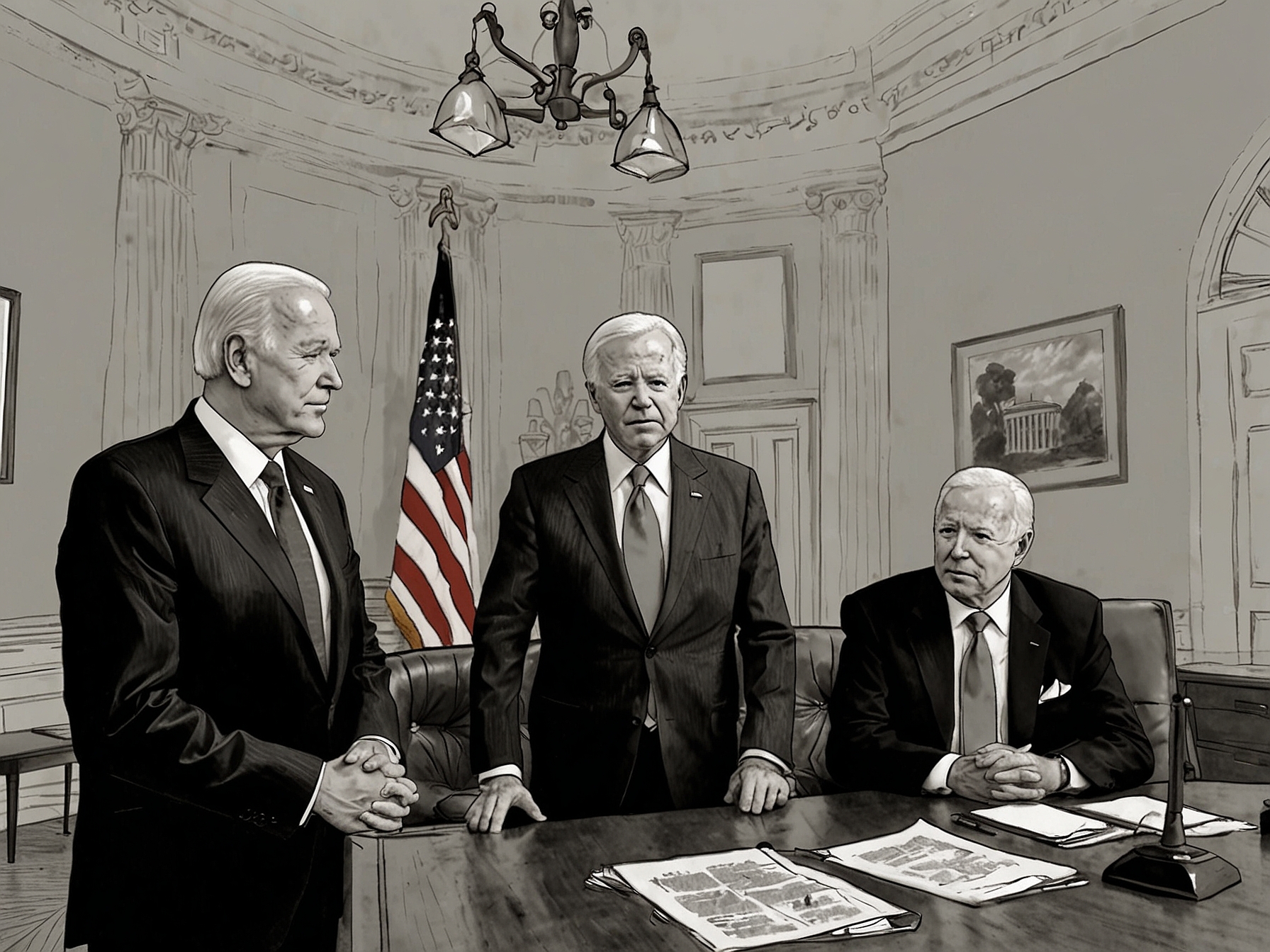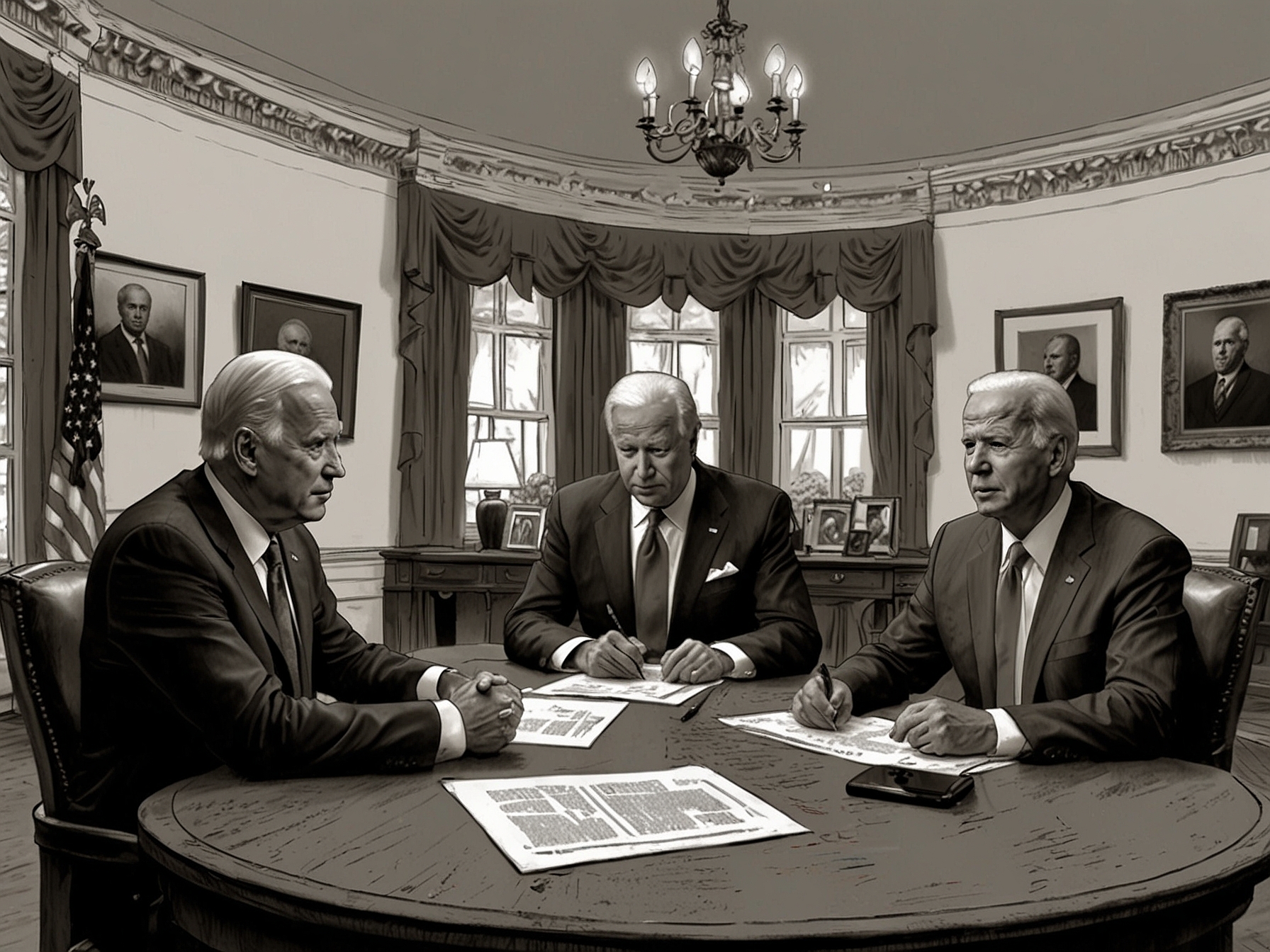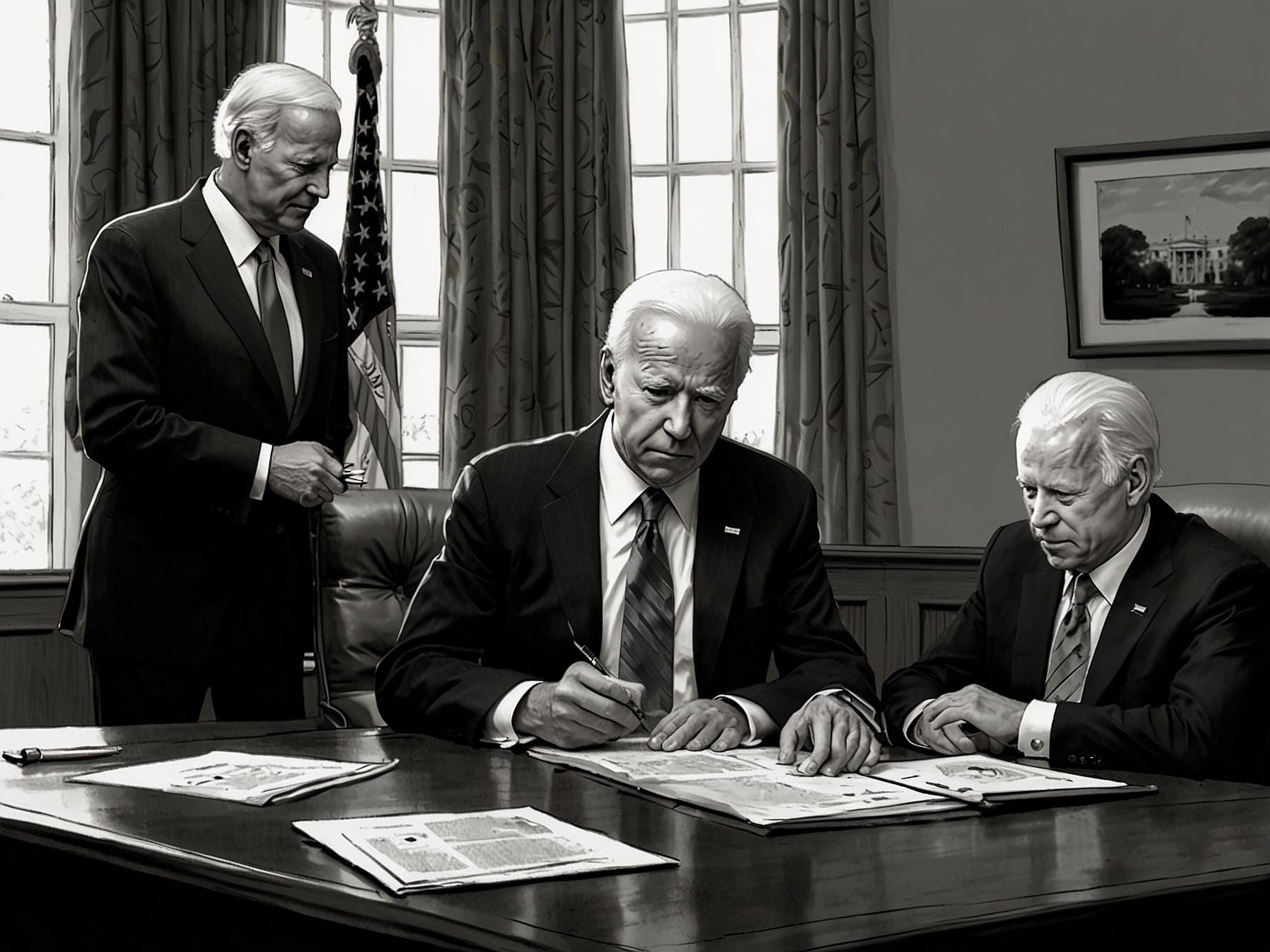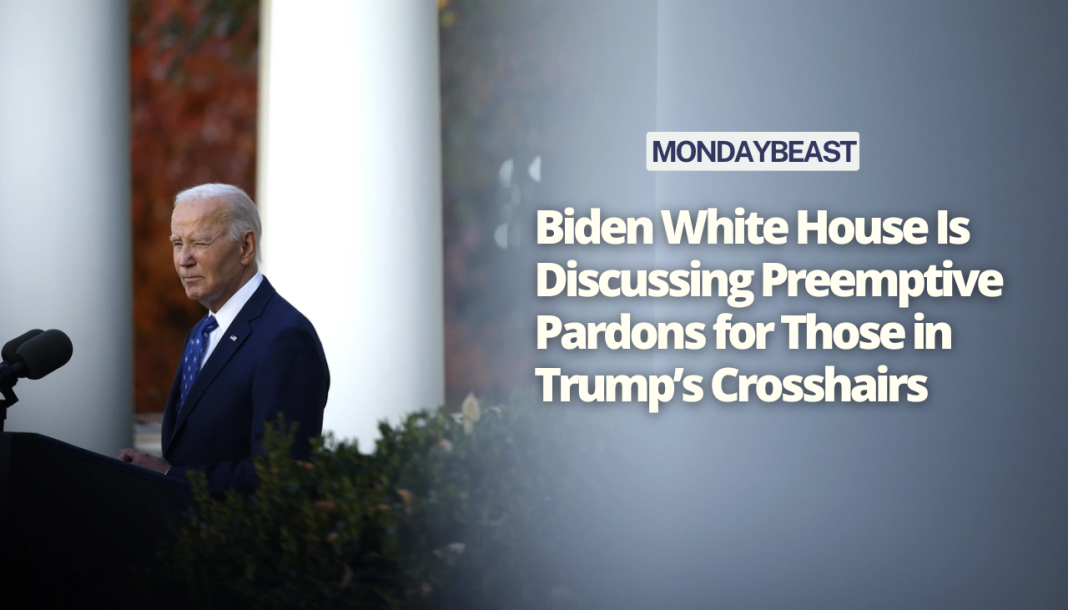Could President Biden issue pardons before Donald Trump returns to power? This question weighs heavily in the West Wing. Internal debates churn among Biden’s aides. They fear that Trump’s victory could spell trouble for critics of his administration. The landscape is shifting, and the stakes are high.

One name has triggered considerable anxiety: Kash Patel. Announced as Trump’s pick for FBI director, Patel has made his intentions clear. He plans to go after Trump’s critics, and the implications are alarming. Biden’s team takes this threat seriously. They know the realities of political revenge. It raises a specter of legal repercussions for many officials.
Potential targets for Trump include key figures from the January 6 Committee. Individuals like Senator Adam Schiff and former Representative Liz Cheney are in the crosshairs. They’ve faced Trump’s fury before, and there’s no sign of reprieve. Trump’s rhetoric has been fiery, claiming Cheney should face prison for her role in the committee.

In this climate, Biden’s inner circle debates a bold idea: granting preemptive pardons. Proposal discussions are organized by White House counsel Ed Siskel. Various aides explore the implications of this unprecedented move. They’re weighing the potential fallout, both political and social. Nothing about this is straightforward.
Concerns about perceptions loom large. Bestowing pardons on officials who haven’t committed crimes appears problematic. Critics like Schiff assert that such actions may seem defensive. They argue it could fuel the very criticisms Biden wants to avoid. However, it can protect those facing Trump’s wrath.

Democrats are split on the idea. Some argue historical precedent supports preemptive pardons. They recall Gerald Ford’s controversial pardon of Richard Nixon. In a similar vein, calls for action have intensified. Representative Brendan Boyle states, “This is no hypothetical threat.” His plea underscores the seriousness of the situation.
Yet, others express hesitation. Some officials feel unsure about accepting a pardon they haven’t asked for. They worry how it might be perceived, leading to uncomfortable implications. Liz Cheney’s previous comments show her grappling with the concept. Other potential recipients of such pardons remain quiet, balancing privacy and political survival.
Legal costs also create new anxieties. Even the threat of investigation can create burdens for officials. Hiring lawyers can lead to daunting six-figure fees. This is especially daunting for those without substantial means. Some may even rethink job opportunities, eyeing higher wages to afford legal safety.
Pressure is mounting for Biden to offer clemency. A coalition of Democratic lawmakers urges action, aiming to push back against Trump’s looming threats. They see his threats as real and must be confronted. Lawmaker Hakeem Jeffries has also linked this issue to the pardoning of Hunter Biden. Should this approach be extended to deserving individuals?
Ultimately, Biden’s response could reshape American politics. It’s not just about pardons. It reflects deeper questions about justice, accountability, and power. Will Biden act to shield officials from Trump’s possible retribution? Or will he take a more cautious approach, balancing morality and practicality?
As the January deadline approaches, the urgency mounts. Biden may find himself at a crossroads. Decisions made in the next weeks will carry weighty consequences. The political landscape is fraught with tension, and uncertainty looms large. With a former president threatening a return to form, how will Biden navigate these waters?




